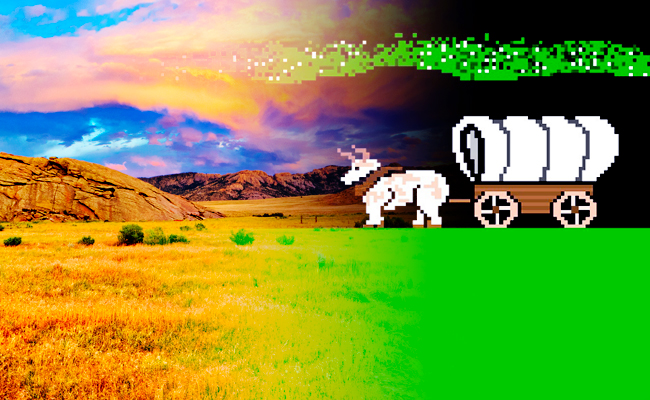
Sally died of dysentery. Your oxen drowned fording a river. Game over.
For Americans of a certain generation, these ominous phrases recall hours spent in school computer labs, eyes straining at the warm tube glow of a monitor, playing one of the only games deemed educational enough for the classroom. The Oregon Trail was a mid-90’s cultural phenomenon, designed to teach kids… American history? Anachronistic survival skills? Rudimentary frontier medicine?
Of course, the actual Oregon trail was a long and treacherous trail undertaken in long caravans of covered wagons during the mid 19th century. As the story goes, somewhere around Wyoming the wild gamblers of the bunch (along with the saloon and brothel-keepers), would break off and head for California and gold, while families of brave homesteaders would strike out northwesterly to Oregon, looking for land and a chance to make an honest living farming or ranching.
Naturally, when we were invited to drive the second half of that great storied trail in a Buick Regal TourX wagon, we leaped at the chance. Secure in the knowledge that the rivers now had bridges, the local water supplies were known to be cholera-free, and jerky could be purchased readily and in ample supply at most gas stations, we set out as air-conditioned pioneers. What we discovered was the greatest forgotten American road trip.
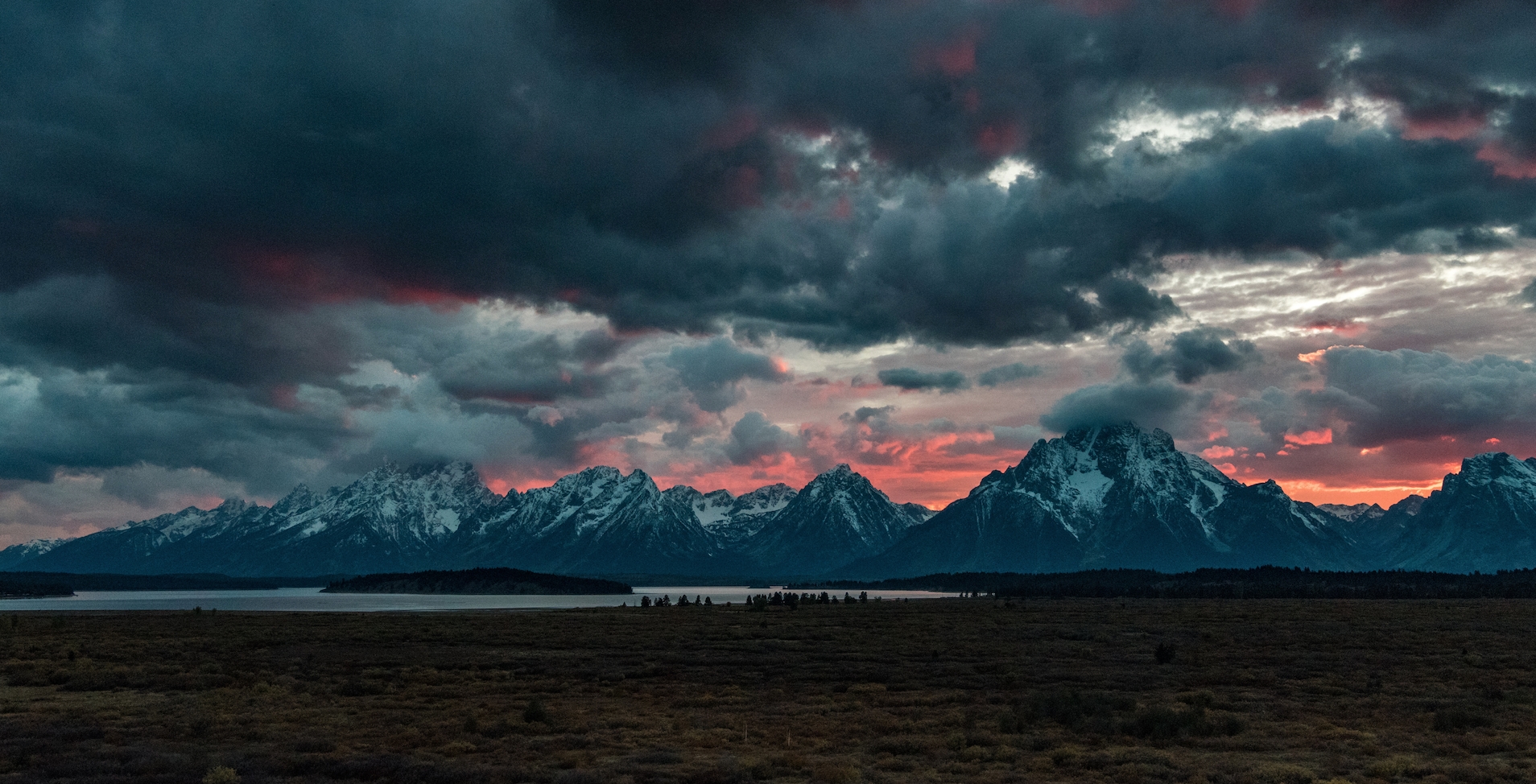
Certain American road trips loom large in the cultural imagination: the Pacific Coast Highway; New England in the autumn when the leaves turn; getting your kicks on Route 66. Yet a quick canvassing of friends’ past experiences confirmed it: for whatever reason the Oregon Trail is a road far less traveled. That’s more than a thousand miles of untrammeled natural beauty and missed opportunity.
We began our journey outside of Cheyenne, Wyoming, at the Terry Bison Ranch, which is something like a Western-themed amusement park complete with a clapboard ghost town facade, a short train, pens of llamas, camels, and assorted other critters and varmints. It’s a good place to go to learn how to throw a lasso or provoke an ostrich (bad idea, pardner.) Then it was into the car and out into those wide-open Wyoming plains, miles of dry scrub with snowy mountains teasing way off in the distance and the occasional flattened prairie dog or possum marking the miles.
Coming from the East, we experienced that sublime rolling openness that Mark Twain described so perfectly in Roughing It:
We bowled away and left “the States” behind us. It was a superb summer morning, and all the landscape was brilliant with sunshine. There was a freshness and breeziness, too, and an exhilarating sense of emancipation from all sorts of cares and responsibilities, that almost made us feel that the years we had spent in the close, hot city, toiling and slaving, had been wasted and thrown away… Just here the land was rolling—a grand sweep of regular elevations and depressions as far as the eye could reach—like the stately heave and swell of the ocean’s bosom after a storm. And everywhere were cornfields, accenting with squares of deeper green, this limitless expanse of grassy land. But presently this sea upon dry ground was to lose its “rolling” character and stretch away for seven hundred miles as level as a floor!
On the Oregon Trail, the land changes gradually—even imperceptibly, at first—but dramatically. After a few hours in the flattened expanse surrounding Cheyenne, we ascended the Lincoln Highway and were at an elevation of more than 8,000 feet — with snowy peaks all around us and in sudden need of an overcoat. Then we dipped back down into a broad mountain-ringed basin as we headed into Utah for a night “glamping” at the Conestoga Ranch on the shore of Bear Lake.
Even a passing acquaintance with Utah will show a traveler why Brigham Young and his flock of Mormons called “halt!” and declared paradise found. In front of our warm and luxurious tent, we tended a fire and drank whiskey, our bellies full of biscuits and barbecue, as the sun fell behind the mountains and the stars took up bright formation in the blackening firmament. Come morning, dawn broke over the lake, turning the water gold in the morning light. On our way out of the campground, we passed by one of our vehicle’s late ancestors, resting in comfortable retirement in a little patch of brush, silently watching over the highway. We paid our respects and moved on.
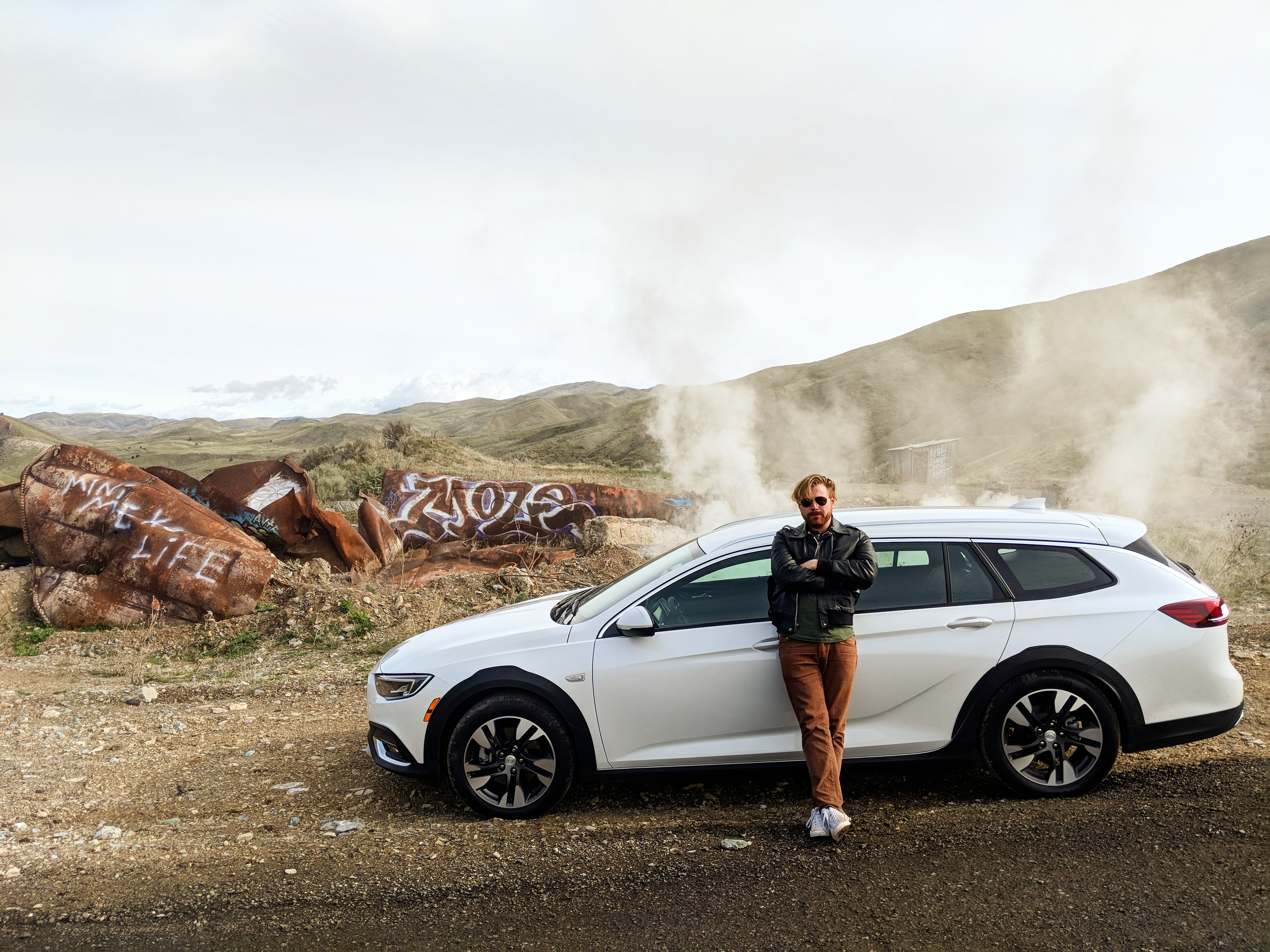
From Utah, we stopped by Shoshone Falls in Idaho, the West’s own answer to Niagara and a place fit for selfies and suicide, by the looks of it. It wasn’t hard to imagine one of those original Oregon-Trailers getting fed up with the dysentery and the rattlesnakes and the stubborn oxen and the ceaseless creaking of the wagon and deciding to end it all with a leap into the churning drink. Fortunately, our trip gave no cause for a desperate jump into the falls.
At the Three Islands Crossing State Park we saw where all of those oxen must have drowned in the Snake River before a savvy chap named Glen came along and built a lucrative ferry business. The land remained high and flat for a while, rolled out like hopsack under the cloudless sky, and the wind flew around our car with an encouraging whistle. A little further on and we were in for the night in Boise.
And who knew Boise was so fun? Downtown seems to be thriving with spud-fed and zitless all-American youths setting their caps at one another over local beers much as their whiskered and bonneted ancestors might have done in the long chain of begattings that ended up with them. For a night out on the trail, you could do a lot worse than a stop in Boise.
Somewhere around Lime, Oregon we began following a line of old rail track that took us past an abandoned factory covered in graffiti. Sensing opportunity just like the brave pioneers who came before us, we lit the smoke bombs we’d bought back in Wyoming and staged a photo shoot with our Buick for social media, figuring the folks back East would want to know we were making it okay.
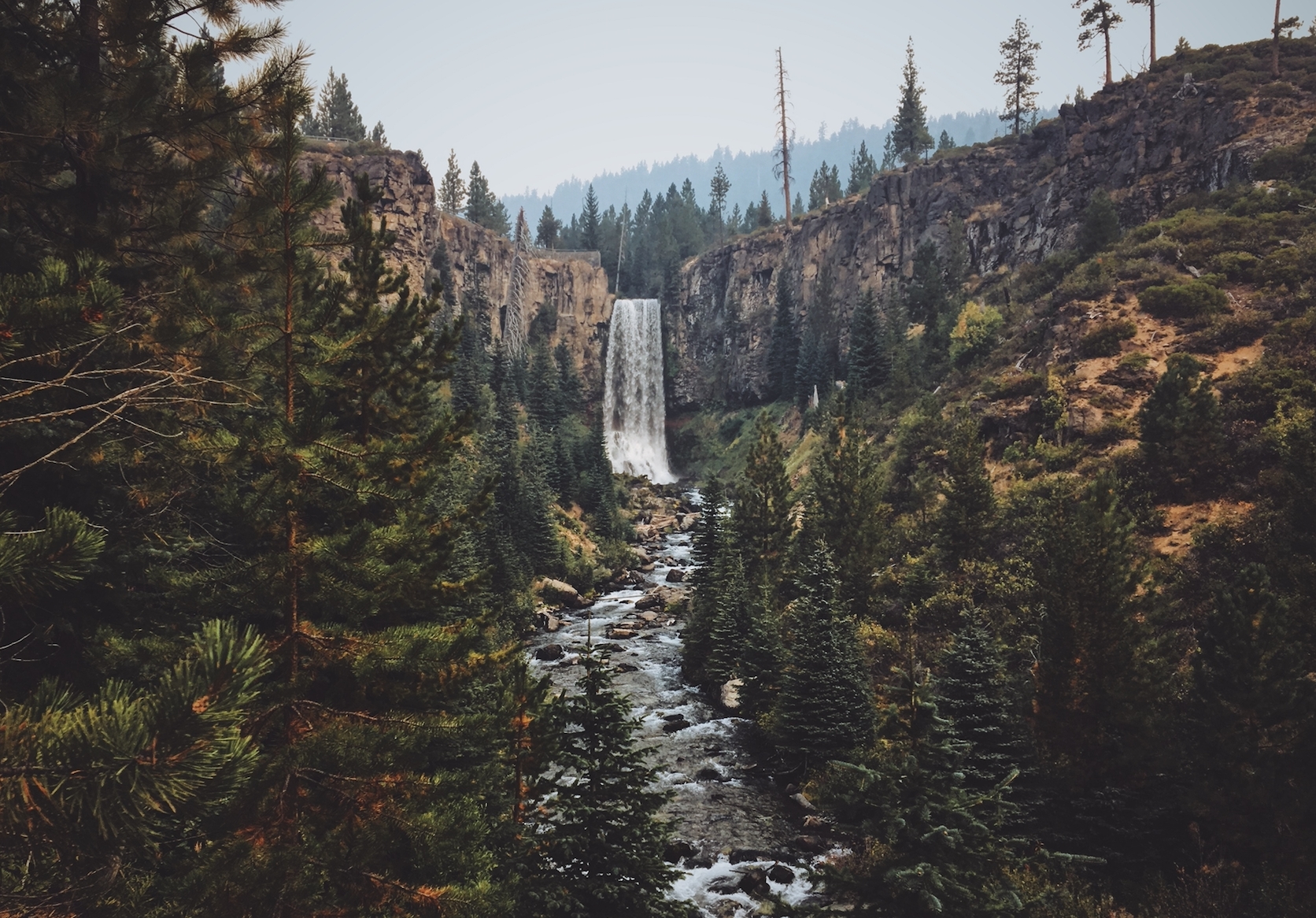
The deeper into Oregon, the greener it got. The hills bucked and rolled and those eternally straight roads we’d taken for so much of our trip began to curve and wind through the country as the trees grew tall and Portland presented on the horizon. Reluctantly, we handed over the keys to our wagon, fantasy pioneers no longer but with more than a pixellated tombstone to remember the Oregon Trail by.
But we also got the pixelated tombstone.
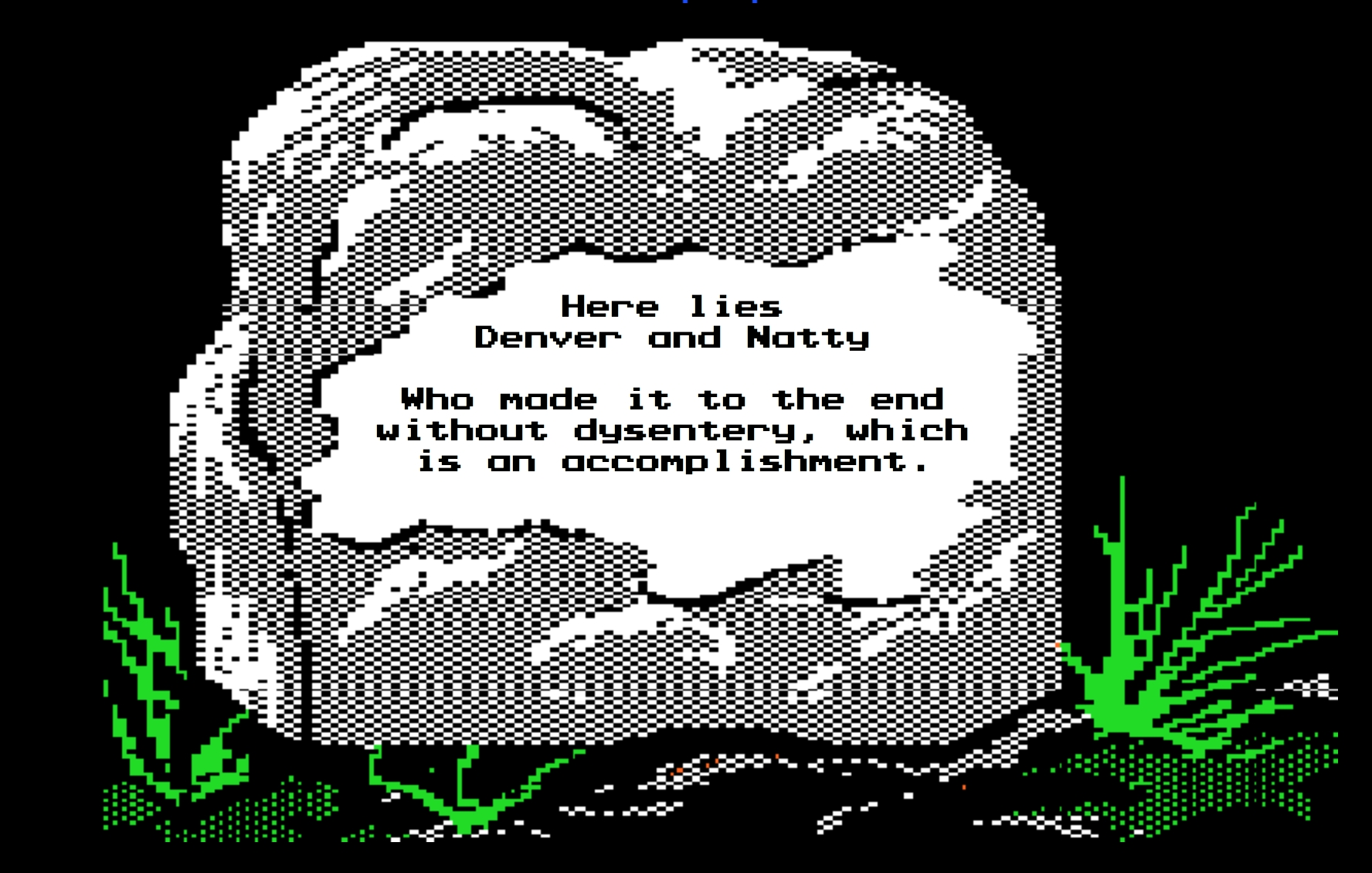
You can read the Uproxx policy on press trips here.






